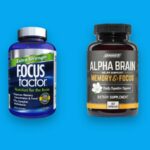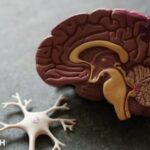
Table of Contents
Introduction
Depression is a serious mental disorder that can have a significant impact on an individual’s life. If left untreated, depression can lead to decreased productivity and a reduced quality of life. Some people suffering from depression may also experience suicidal thoughts and behaviors, which can be very dangerous if not treated properly.
There are a number of treatment options available for people suffering from depression. Some of these treatments include medication and psychotherapy.
However, some people prefer to try alternative therapies first. The problem is in neurotransmitter deficiencies and depleted stores of critical neurotransmitters such as serotonin, dopamine, noradrenaline, etc. Nootropics can help with that.
In this article, we will take a closer look at some of the different nootropics and their effectiveness in treating symptoms of depression. We will also discuss various possible side effects associated with the use of these supplements.
10 Best Natural Nootropics for Depression and other Mood Disorders
1. L-Theanine
When we speak about depression, L-Theanine is a very important supplement that we should include in our list. This is because it helps regulate the brain chemicals and reduce stress levels in the body. This helps alleviate depression and anxiety symptoms. For people with depression who are experiencing insomnia, it can also help improve their sleep. It has also been shown to boost the immune system and prevent viruses from spreading. It is also found in some teas and beer to help increase alertness and improve focus.
Some studies have shown that L-theanine helps relieve anxiety and improve mood by stimulating the production of certain chemicals in the brain. It also improves memory and concentration by increasing the activity of dopamine and GABA receptors in the brain. One study found that L-theanine was more effective than a placebo in reducing symptoms of anxiety and depression in patients with Alzheimer’s and Parkinson’s.
According to the National Institutes of Health, L-theanine is safe for most adults when taken in the recommended doses. However, it can cause mild side effects like nausea and drowsiness. It may also interact with other medications such as antidepressants and drugs used to treat high blood pressure.
SUMMARY
L-Theanine is a super important nootropic. It has a huge impact on depression because it regulates the brain chemicals, reduces stress in the body, boosts the immune system, and improves focus.
2. L-Tyrosine
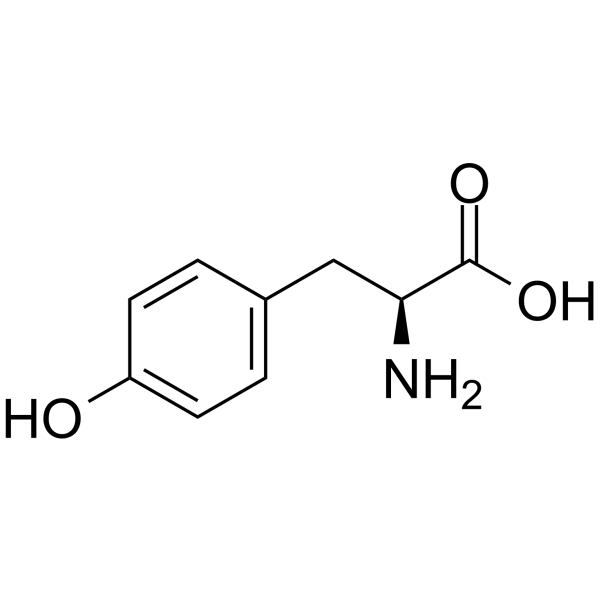
Tyrosine is a non-essential amino acid found primarily in protein-rich foods like meat, poultry, fish, milk, eggs, legumes, seeds, and nuts. It is involved in the synthesis of norepinephrine and epinephrine, which are key neurotransmitters that affect mood and energy. In people suffering from depression, tyrosine deficiency can cause low levels of these neurotransmitters, which can lead to feelings of tiredness and lack of motivation. Supplementing with tyrosine can help boost levels of these neurotransmitters and reverse symptoms of depression.
Studies have shown that tyrosine supplements can increase neurotransmitter levels in the brain and improve mood in people with depression. They have also been shown to reduce fatigue and improve mental performance, which is especially useful for people with dementia. In addition, tyrosine may help promote weight loss by reducing cravings for high-calorie foods and reducing body fat stores.
Common side effects of tyrosine supplements include increased heart rate, muscle tremors, headaches, irritability, and rapid heartbeat. Tyrosine may increase the risk of bleeding for people with low platelet counts, so it’s important for people taking blood-thinning medications to avoid tyrosine supplements.
SUMMARY
Tyrosine is a nootropic found primarily in protein-rich foods. It mostly affects your mood and energy. Tyrosine deficiency usually leads to feelings of tiredness and lack of motivation. Supplementing with Tyrosine boosts ur energy and motivation, and overall mood.
3. Noopept

Noopept is well-known for their powerful neuroprotective properties and Its anti-aging abilities, which is why they are becoming increasingly popular in the nootropic community.
Speaking about depression, noopept has demonstrated its potential role in treating such disorders by improving brain function. This ability may be attributed to its brain-protective properties, which enhance the production of vital neurotransmitters such as acetylcholine and dopamine.
It can also help reduce oxidative stress and inflammation in the brain, which may contribute to the development of neurodegenerative diseases like Alzheimer’s and Parkinson’s. As a result, the use of noopept as a treatment for depression is currently being investigated in the scientific community.
Side effects of noopept include headache, nausea, vomiting, diarrhea, dizziness, sweating, and fatigue. Usually, noopept is safe to take without medical supervision, but it is best to seek your doctor’s advice before taking it if you have an existing medical condition or are taking any prescription medications.
SUMMARY
Noopept is a power nootropic that contains anti-aging and focus improvement abilities. It helps reduce oxidative stress and inflammation in the brain which enhances the production of vital neurotransmitters such as acetylcholine and dopamine.
4. Rhodiola Rosea

Research shows that rhodiola rosea can stimulate the release of endorphins and other feel-good hormones, which can help treat depression and anxiety. It also helps relieve fatigue and restore stamina by increasing oxygen supply to the brain. In addition, this herb has been shown to be beneficial in the treatment of jet lag as well as certain physical conditions such as asthma and hypertension. Furthermore, it may help boost memory and protect against cognitive decline.
There are a range of reported side effects associated with this supplement including insomnia, headache, dry mouth, rashes and skin eruptions, stomach upset, dizziness, and nervousness. However, most of these side effects are caused by taking too much rhodiola rosea at one time. In most cases, it is safe to take rhodiola rosea on a regular basis without causing any serious adverse health effects.
SUMMARY
Rhodiola Rosea stimulates the release of endorphins and other feel-good hormones which usually help in treating depression and anxiety. It also boosts memory and protects against cognitive decline. It is also safe to take it on a daily basis.
5. Ashwagandha
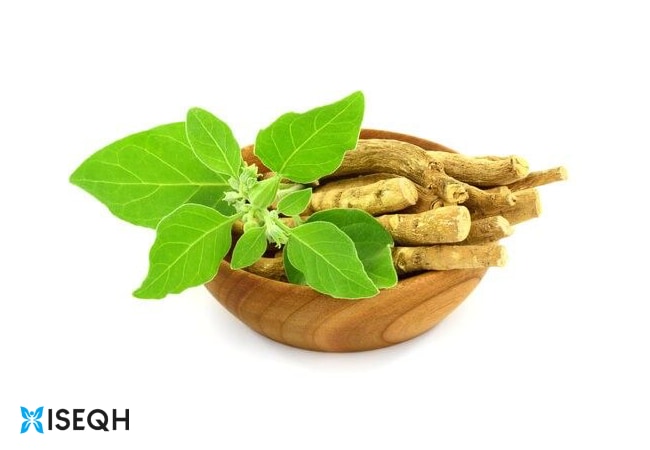
Ashwagandha is a traditional Indian herb that has been used for centuries to treat a wide variety of ailments. In fact, it has even been used to ease symptoms of anxiety and depression.
Today, it is considered one of the most effective natural treatments for stress-related conditions. In addition to reducing stress and anxiety, it also promotes health and well-being by supporting the immune system and increasing energy levels. It may even help to reduce feelings of fatigue and boost your memory.
When taken as directed, ashwagandha is generally very safe and well tolerated by most people. However, some people have reported experiencing side effects such as indigestion, bloating, gas, abdominal pain, and dry mouth.
SUMMARY
Ashwagandha is used for centuries to treat anxiety and depression. It’s one of the most effective natural treatments for stress-related conditions. It also promotes health and well-being by supporting the immune system and increasing energy levels. It’s generally a safe and well-tolerated herb.
6. Uridine
Uridine helps the body produce the energy it needs for daily activities by converting proteins into adenosine triphosphate (ATP), a molecule that stores energy and helps your muscles move. It also enhances blood flow to the brain and other important organs to improve oxygenation and overall organ function.
Studies suggest that supplemental uridine may also be beneficial for improving short-term memory, lowering blood pressure, and reducing symptoms associated with Parkinson’s disease.
Speaking of depression, uridine also seems to stimulate the production of dopamine and other neurotransmitters in the brain, which can help to alleviate depression and anxiety. It can also improve your attention and reaction times while also supporting healthy brain function and memory retention.
However, it’s important to keep in mind that the results of these studies are preliminary in nature and more research is needed before the full potential of uridine can be established.
SUMMARY
Uridine helps body to produce the energy it needs for daily activities by converting proteins into adenosine triphosphate. It enchances blood flow to the brain and other organs. It’s also beneficial for improving memory, lowering blood pressure, anxiety and depression.
7. Magnesium
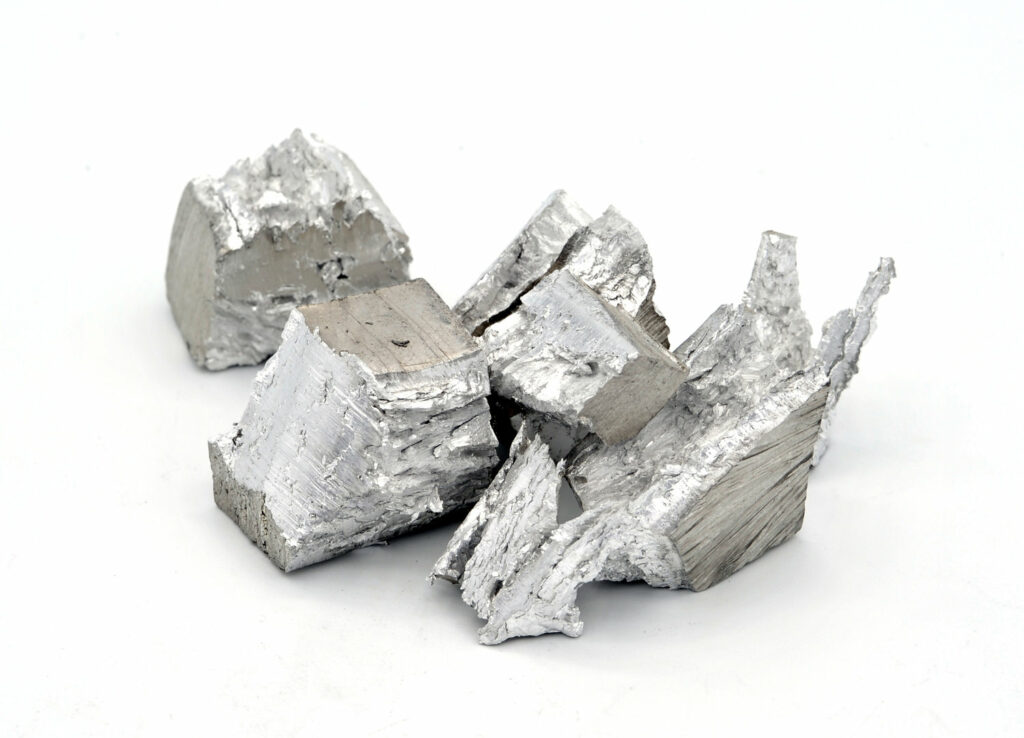
Magnesium is usually found in various foods, but you also need to consume it on a daily basis to ensure optimal health and wellbeing. It’s also one of the top nutrients that most people are deficient in these days, and also one of the best nootropics for depression due to its positive impact on several brain processes including neurotransmitter production, energy production, and gene expression.
In fact, many studies have shown that magnesium deficiency can contribute to the development of mood disorders like depression and anxiety, as well as certain neurodegenerative disorders like Alzheimer’s disease and Parkinson’s disease.
Fortunately, consuming magnesium-rich foods or taking supplements can help you to replenish your levels and reduce the risk of these health conditions.
Pro tip! If you’re looking to improve your sleep or reduce stress, supplementing with magnesium in the evening before bed may be just what you need to fall asleep faster and stay asleep longer.
SUMMARY
Magnesium is found in various foods. It’s one of the most important nutrients we should take on a daily basis. It’s one of the best nootropics for depression because it has a positive impact on several brain processes, including neurotransmitter production, energy, and gene expression.
8. Bacopa Monnieri

Bacopa Monnieri is a popular herbal remedy that’s known to help improve memory, concentration, and cognition – making it an excellent supplement for enhancing cognitive function and boosting mental performance and depression.
It’s believed to increase the production of serotonin, which is a neurotransmitter that regulates mood, sleep, appetite, and many other important bodily functions.
Studies have shown that bacopa monnieri may also be effective in reducing anxiety and depression and enhancing overall wellbeing, which makes it a great choice for improving your quality of life and promoting emotional health.
Bacopa Monnieri is used for millennia as a treatment for depression, anxiety, schizophrenia, high blood pressure, atherosclerosis, and diabetes.
SUMMARY
Bacopa Monnieri improves memory, concentration, and cognition. It’s believed to increase the production of serotonin, a neurotransmitter that regulates mood, sleep, appetite, and other body functions. It’s a great solution to treat anxiety and depression.
9. Lion’s Mane Mushroom
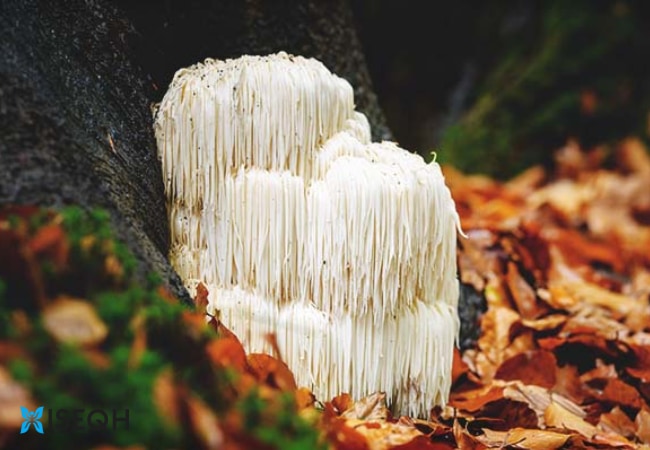
Speaking about depression, lion’s mane mushroom is actually used for antidepressive effect. Scientific studies have confirmed that this mushroom could help treat mental health issues such as depression, anxiety disorders, dementia, and cognitive problems. The active ingredients found in this mushroom can also prevent neuronal damage and fight the free radicals responsible for neuron damage and death.
One study even found that lion’s mane mushroom could increase brain-derived neurotrophic factor (BDNF) levels in mice—a protein that’s essential for healthy brain function, particularly when it comes to learning and memory. In addition, some studies have found that lion’s mane could enhance the effects of antidepressants and other medications used to treat depression by increasing the levels of neurotransmitters in the brain.
Of course, science knows little about the medicinal values of herbal supplements like lion’s mane mushroom. Talk to your doctor before using any herbal supplements to avoid any possible side effects.
SUMMARY
Lion’s Mane Mushroom is used for antidepressive effect. It’s confirmed that this mushroom helps treating mental health issues such as depression, anxiety disorders, dementia and cognitive problems. It can prevent neuronal damage and fight the free radicals response for neuron damage and death.
10. Lumonol
Are you curious how you can get the benefits of a superfood like moringa into your diet? Enter: lumonol! Also known as the King of Herbs, moringa has been used for thousands of years as a food and medicine in many different cultures around the world. Now it’s your turn to join the healthy ranks by taking daily doses of the goodness of moringa.
Lumonol helps depression by blocking the absorption of serotonin from the intestines, making it an effective dietary supplement for anxiety and depression. It also contains antioxidants that help prevent free radical damage and slow the progression of degenerative diseases. It can also improve overall mental clarity, allowing you to think more clearly and make wiser decisions.
SUMMARY
Lumonol is called King of Herbs. It has been used for thousands of years as a medicine that helps with depression by blocking the absorption of serotonin from the intenstines. It contains antioxidants that help prevent free radical damage and slow the progression of degenerative diseases.
The Different Types Of Nootropics
There are a variety of different nootropics available on the market today. These include items such as vitamins, minerals, herbs, amino acids, botanicals, and other plant-based substances.
There are also a number of pharmaceutical drugs with nootropic properties. These drugs are also referred to as “smart drugs” because they can boost mental performance and improve cognitive functions.
Depression and Neurogenesis
Recent research conducted by the University of Bonn suggests that increasing the amount of adult neurogenesis in our brain could be an effective way to treat depression. The researchers explained that this process is regulated by BDNF, a chemical which plays an important role in promoting the growth of new neurons in the brain.
Depression and Neurotransmitters
Research shows that the levels of neurotransmitters such as serotonin and dopamine can be negatively affected by stress, anxiety, and depression. For example, a person suffering from depression may have a deficiency in norepinephrine – a brain chemical that plays an important role in regulating mood.
Studies have also suggested that low levels of norepinephrine may cause the development of depressive symptoms.
Depression and Stress
Anxiety and stress play a large role in the development of depression. People with high levels of stress and anxiety tend to become depressed when they cannot cope with the demands of everyday life.
As a result, these people may experience symptoms such as insomnia, fatigue, and poor concentration. These symptoms can make it difficult to perform everyday tasks, which can be further compounded by feelings of low self-esteem.
Symptoms of Depression
Depression symptoms often develop slowly over time, so it can sometimes be difficult to recognise that you are suffering from the condition. The most commonly reported symptoms of depression include feelings of sadness and hopelessness, irritability, difficulty sleeping or concentrating, and loss of interest in activities that you once enjoyed.
Depression can also impact your physical health, leading to conditions such as cardiovascular disease, obesity, and diabetes. People who do not seek treatment for their depression can experience serious consequences such as suicidal thoughts or actions. It is extremely important to seek help if you suspect that you are suffering from depression.
Many people with depression will benefit from therapy and/or medication, although others may find that their condition improves naturally with time and support from their family and friends. Nootropics for depression are becoming more and more popular due to their effectiveness in treating mental health issues.
Nootropics for depression work by stimulating the production of the neurotransmitter acetylcholine in the brain. This chemical is responsible for communication between neurons and is a crucial element of cognitive functioning. By increasing levels of acetylcholine in the brain, nootropics for depression are able to improve memory and enhance learning ability.
Although depression is often associated with a loss of energy and motivation, the use of nootropics for depression can actually help you to feel more energised and enthusiastic about life.
Causes of Depression
There are many causes for depression, some of which include: life events (e.g. losing a loved one), biological factors (e.g. changes in brain chemistry), and psychological factors (e.g. stress).
Certain lifestyle factors can also lead to depression, including smoking and alcohol abuse. Gender and age can also affect the risk of depression, with those under the age of 30 years being particularly vulnerable to the condition.
Unfortunately, some people experience their first episode of depression at an early age, which may prevent them from seeking help due to the stigma surrounding mental health conditions.
Side Effects of Nootropics for Depression
Due to the increased brain activity associated with nootropics for depression, you may experience some side effects when using these supplements. One of the most common side effects of nootropics for depression is anxiety.
You may also experience agitation and increased heart rate, which can be particularly problematic if you have a heart condition. In some cases, users may experience mild headaches when first starting a course of nootropics for depression.
These symptoms usually disappear after a few weeks of use but can sometimes last for a few months or longer. This is nothing to worry about and usually passes without any treatment.
Frequently Asked Questions (FAQs)
Will nootropics work for me?
Studies have shown that many of the most popular nootropics for depression work to reduce symptoms of depression and improve mood.
However, the effectiveness of nootropics for depression varies from person to person, and your results may vary depending on your individual circumstances.
Do nootropics affect serotonin?
Some people take antidepressants in order to increase levels of the brain chemical serotonin. However, many nootropics do not increase levels of serotonin and instead act to improve other neurotransmitters in the brain such as dopamine or norepinephrine.
Therefore, it is unlikely that you will experience any negative side effects from taking nootropics for depression as long as you take them at the correct dosage and do not exceed the recommended dose.
KEY TAKEAWAY
Taking Nootropics to treat depresion has many possible benefits and can greatly reduce or even eliminate feelings of anxiety and stress.
While some nootropics are natural substances like vitamins or amino acids, others are synthetic drugs designed to treat specific conditions.
If you are interested in using nootropics for depression, it is important that you follow your doctor’s instructions and do your research to determine which products will work best for you.
The information contained on this page is for informational purposes only and should not be construed as medical advice.





